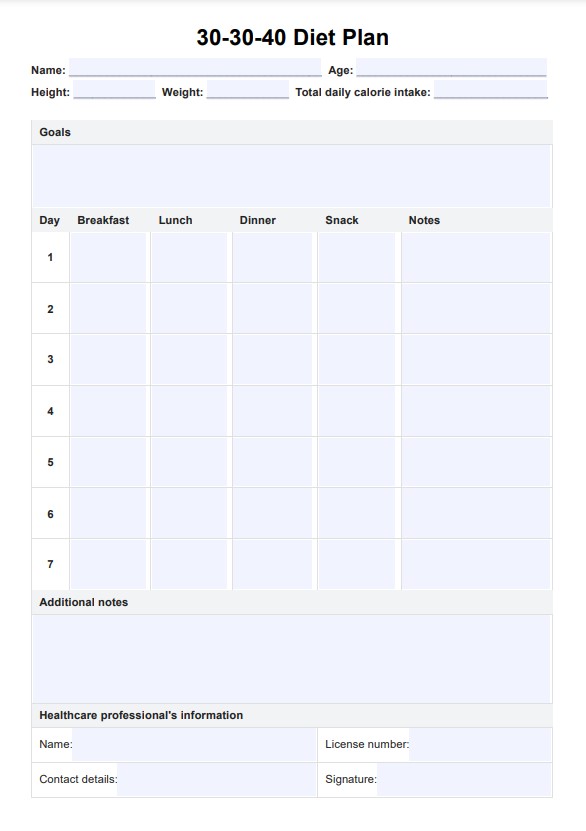The 30 30 40 diet may be effective for weight management as it promotes a balanced intake of macronutrients, fostering a sustainable and healthy approach to calorie control. However, always consult with a healthcare professional.

30 30 40 Diet
Transform your lifestyle with the 30 30 40 Diet Plan, focusing on balanced meals for optimal body nutrition. Manage calories through mindful eating habits.
Use Template
30 30 40 Diet Template
Commonly asked questions
Absolutely! The flexible plan allows you to choose nutrient-dense foods within each category, accommodating personal tastes and dietary requirements while adhering to the specified macronutrient ratios.
Use food journals and apps, or consult a nutrition professional to track your macronutrient intake. These tools help ensure you maintain the recommended fat, carbohydrate, and protein intake balance for optimal results.
EHR and practice management software
Get started for free
*No credit card required
Free
$0/usd
Unlimited clients
Telehealth
1GB of storage
Client portal text
Automated billing and online payments











